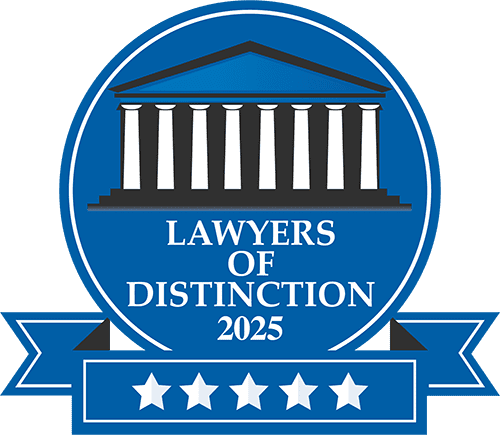The world of corporate law is evolving rapidly, and nowhere is this more evident than in mergers, acquisitions, and compliance. Business transactions, once confined to paper trails and handshake deals, have become increasingly complex in today’s digital, data-driven economy. Legal teams must navigate the complexities of ever-shifting regulatory standards, high-stakes negotiations, and heightened demands for transparency. As markets continue to expand globally, these legal professionals face the challenge of harmonizing varied regulatory requirements across jurisdictions, ensuring that every deal is airtight, compliant, and defensible in a court of law.
At Lawyers of Distinction, we understand that corporate lawyers must stay ahead of these changes to protect their clients’ interests effectively. Our organization, with members nationwide, provides resources and a network to help attorneys keep pace with current trends and anticipate future shifts. As we examine the factors influencing corporate law, particularly in the areas of mergers, acquisitions, and compliance, our insights are grounded in years of collective expertise and a dedication to elevating legal practice across the country.
New Trends In Mergers And Acquisitions
Mergers and acquisitions (M&A) have always been dynamic, but the landscape is undergoing a shift as businesses place greater emphasis on sustainability, technology integration, and international expansion. In recent years, companies are not only seeking growth but also adaptability, as evidenced by the rise of tech-driven acquisitions. With many companies leveraging digital tools and data, acquisitions often focus on acquiring cutting-edge technology or niche expertise that can be integrated into a company’s existing framework, allowing them to maintain a competitive edge in a rapidly changing market.
Additionally, environmental, social, and governance (ESG) considerations have gained prominence in M&A deals. Today’s investors and stakeholders are more attuned to a company’s impact on the environment and society, often demanding transparency and accountability before any major transaction is approved. Consequently, legal teams involved in M&A must evaluate a target company’s ESG practices, ensuring that these align with the acquiring company’s values and long-term goals. Compliance with ESG standards has become a major consideration for mergers, driving firms to assess potential legal risks, particularly in sectors heavily scrutinized for environmental practices.
Cross-border transactions also continue to shape the M&A landscape. As companies pursue expansion beyond domestic markets, they encounter a web of international regulations that vary significantly from one country to the next. Legal professionals handling these transactions must conduct due diligence that encompasses not only financial health but also compliance with foreign laws. Harmonizing these differences is critical to ensuring that cross-border mergers proceed smoothly, mitigating risk and safeguarding both companies’ interests.
Evolving Compliance Standards
Compliance remains a cornerstone of corporate law, and the rules governing it are expanding in scope and complexity. With governments increasingly vigilant about data privacy and security, compliance standards now prioritize these issues alongside financial and operational transparency. Legal teams are responsible for staying current with regulations, from the European Union’s General Data Protection Regulation (GDPR) to the California Consumer Privacy Act (CCPA) in the U.S. These standards affect how companies collect, store, and utilize data, making data protection one of the most important compliance issues in recent years.
Furthermore, antitrust laws have garnered renewed attention, particularly as large corporations continue to acquire smaller competitors, raising concerns about monopolistic practices. Government bodies worldwide are scrutinizing M&A deals to prevent companies from gaining unfair advantages, ensuring that competition remains healthy and consumer interests are safeguarded. Legal professionals involved in corporate transactions must stay informed of antitrust laws and assess how deals may be impacted by these regulations. Failure to adhere to antitrust standards could lead to significant penalties or the blocking of a deal altogether.
Cybersecurity compliance has also risen to the forefront. As companies across all sectors become increasingly digitized, they are also more vulnerable to cyberattacks. Governments have responded by implementing stricter cybersecurity regulations, requiring companies to adopt robust security measures to protect sensitive information. In corporate transactions, particularly those involving technology, ensuring compliance with cybersecurity standards is essential. Legal teams need to assess cybersecurity practices and potential liabilities when advising clients on M&A or compliance issues.
The Role Of Artificial Intelligence And Data Analytics
Artificial intelligence (AI) and data analytics are transforming how corporate law is practiced, particularly in the context of mergers, acquisitions, and compliance. These technologies can streamline due diligence processes, making it easier to analyze vast quantities of data in a short time. By utilizing AI, legal teams can quickly identify potential risks in a transaction, such as undisclosed liabilities or regulatory non-compliance, ensuring that no critical details are overlooked.
Data analytics also allows legal professionals to make more informed decisions based on predictive insights. For instance, analytics tools can forecast how a potential merger might impact a company’s market position, consumer base, and regulatory standing. With these insights, legal teams can offer more precise guidance to clients, helping them make decisions that align with their strategic objectives. Furthermore, AI-powered tools assist in contract analysis, flagging inconsistencies and ensuring that every contract clause aligns with compliance requirements.
The integration of AI and data analytics also brings new ethical and regulatory questions. As these technologies become essential to corporate law, legal teams must consider their implications on privacy and data security. Balancing the benefits of AI with ethical considerations is an emerging challenge, making it essential for lawyers to understand both the technical and legal nuances involved in utilizing these tools effectively.
Why Choose Lawyers of Distinction for Corporate Law Guidance?
At Lawyers of Distinction, our members are dedicated to staying at the forefront of corporate law trends, offering clients cutting-edge legal guidance tailored to the evolving landscape of mergers, acquisitions, and compliance. Our organization brings together some of the most accomplished lawyers from across the country, all dedicated to helping businesses navigate complex legal environments. With our comprehensive directory and nationwide networking opportunities, we offer members the resources they need to succeed in a competitive legal landscape.
Lawyers of Distinction offers unique benefits that help lawyers distinguish themselves and excel in their careers. From exclusive use of our logo and trademark to case referrals, discounted services, and SEO tools, our platform is designed to empower attorneys with the tools they need to provide exceptional service. Join us to access an exclusive community and elevate your corporate law practice. Contact us at (877) 335-3021 or visit our contact form at https://www.lawyersofdistinction.com/contact/ to learn more.






